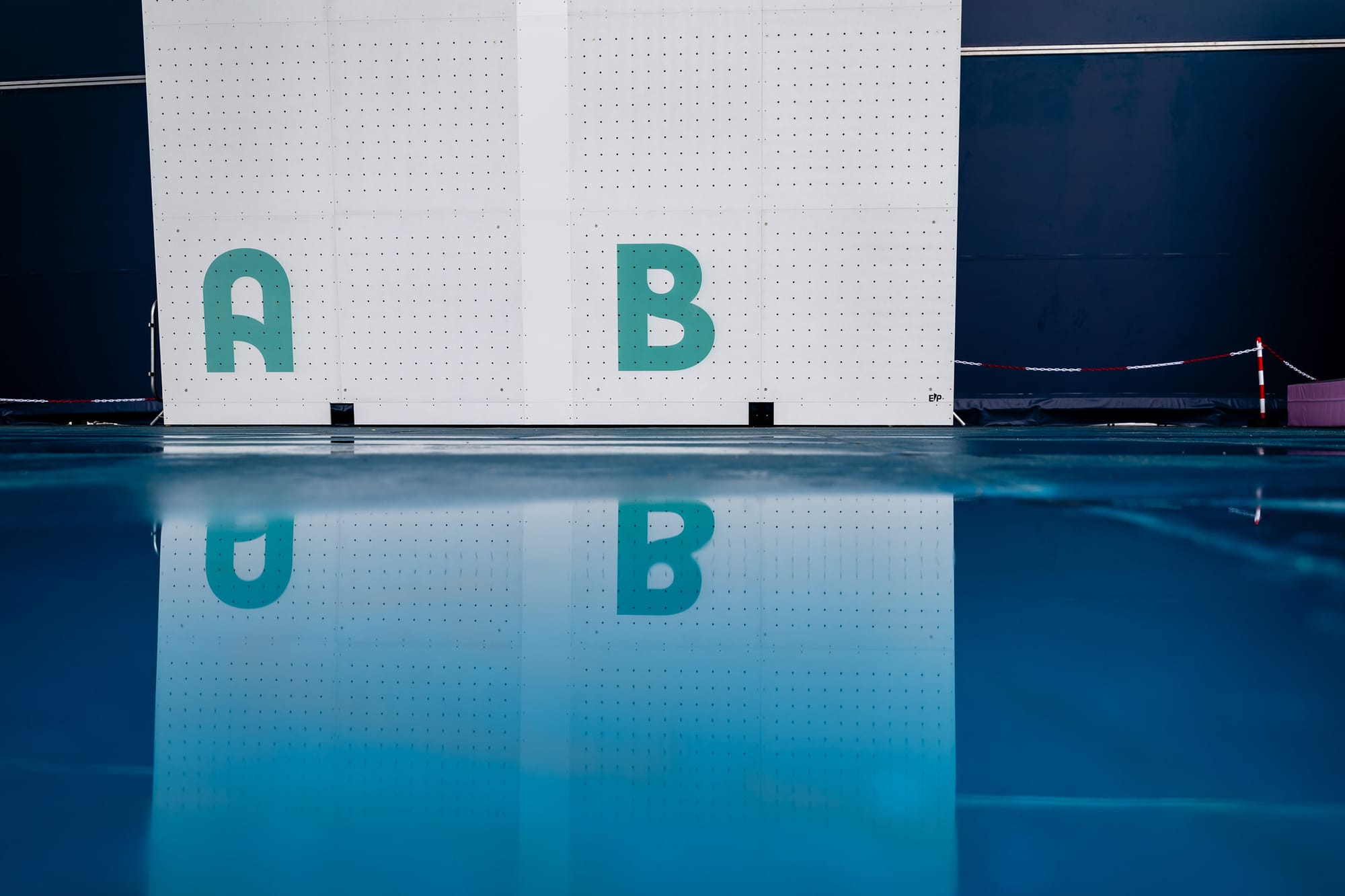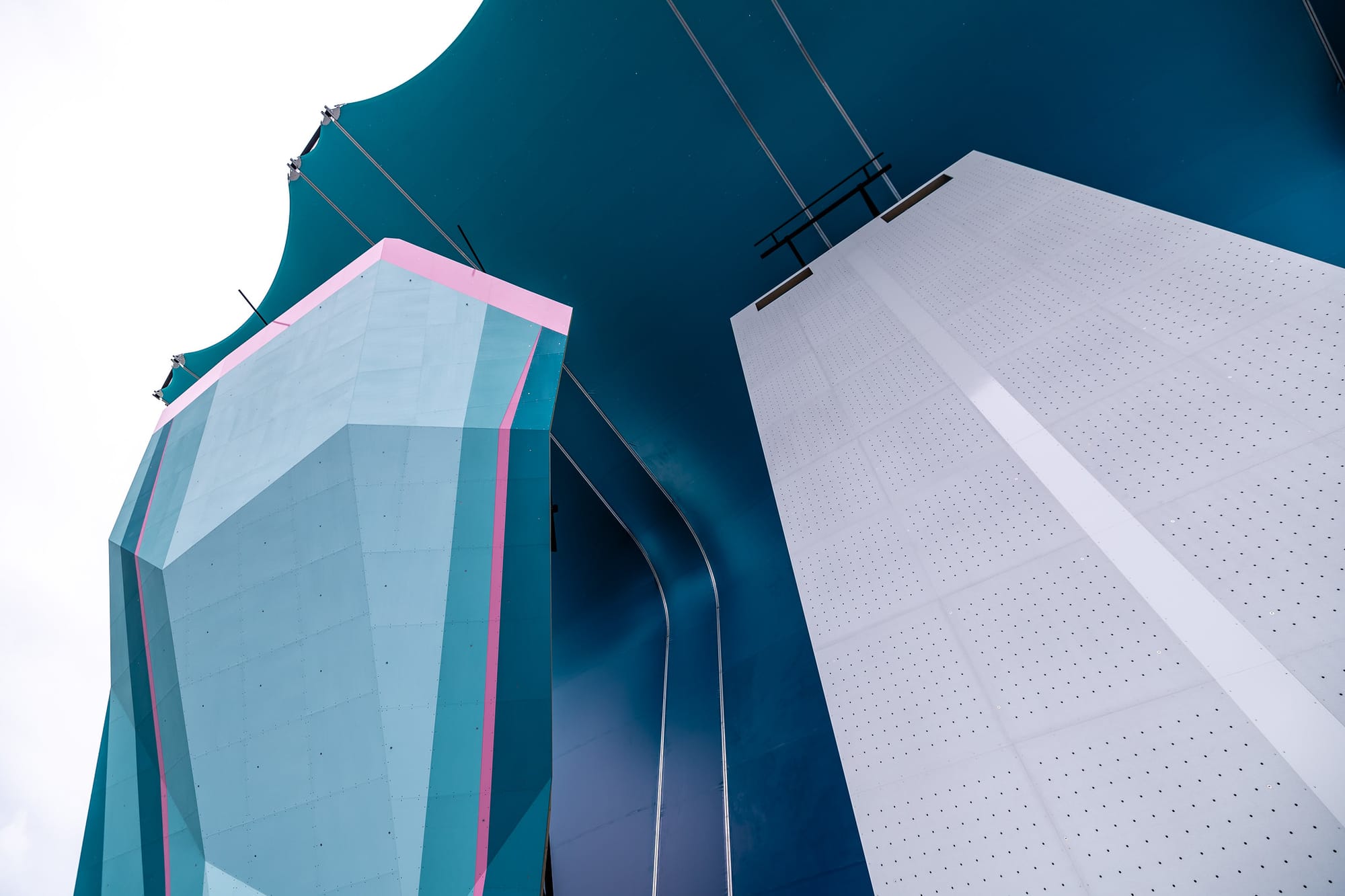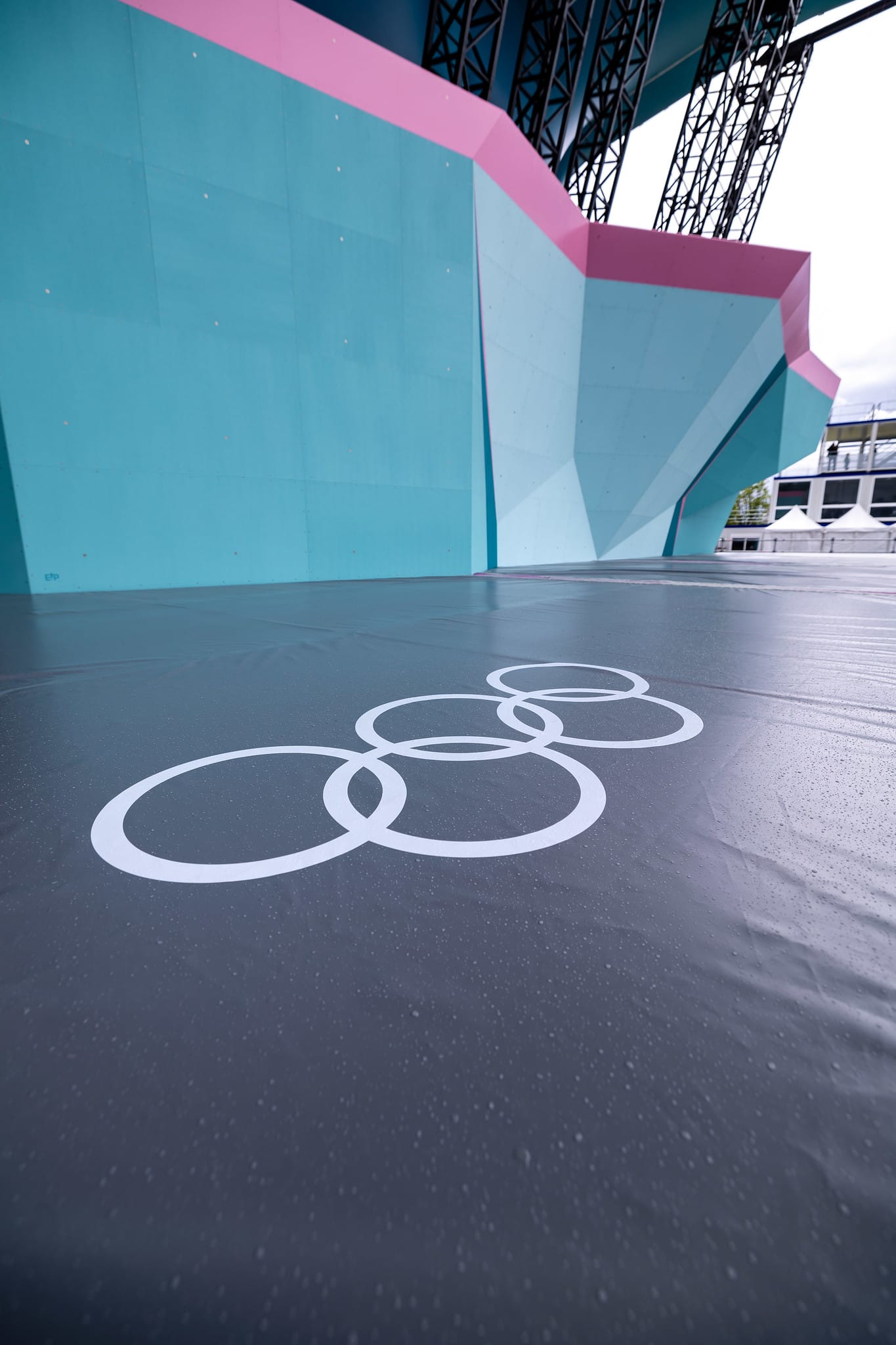Sport Climbing at the 2024 Olympic Games starts today in Le Bourget, Paris.
It has only been three years since Sport Climbing first featured in the Olympics in Tokyo, where 40 athletes competed for 2 sets of medals. In Paris, there are 68 athletes and 4 sets of medals.
The success of Tokyo means that climbing will be in LA 2028 not just as an additional sport but as a core sport in the Olympics, with the guarantee of featuring in further Olympic games after LA.
While in Tokyo, all three of the competition climbing disciplines were combined, in Paris, they are split up, with speed climbing gaining its own set of medals. 28 athletes will compete in speed for the 1 set of medals per sex. Only Boulder and Lead are combined in the new Boulder&Lead competition, where 40 athletes will compete for the other set of medals.
Here is your guide to Sport Climbing at the Paris 2024 Olympics.
What you need to know
Schedule
All times in local time (UTC+2:00)
Monday, 5 August
- 10:00: Male Boulder & Lead semi-final, Boulder
- 13:00: Female Speed qualification, seeding
- 13:35: Female Speed qualification, elimination
Tuesday, 6 August
- 10:00: Female Boulder & Lead semi-final, Boulder
- 13:00: Male Speed qualification, seeding
- 13:35: Male Speed qualification, elimination
Wednesday, 7 August
- 10:00: Male Boulder & Lead semi-final, Lead
- 12:35: Female Speed quarter-finals
- 12:46: Female Speed semi-finals
- 12:54: Female Speed finals
Thursday, 8 August
- 10:00: Female Boulder & Lead semi-final, Lead
- 12:35: Male Speed quarter-finals
- 12:46: Male Speed semi-finals
- 12:55: Male Speed finals
Friday, 9 August
- 10:15: Male Boulder & Lead final, Boulder
- 12:35: Male Boulder & Lead final, Lead
Saturday, 10 August
- 10:15: Female Boulder & Lead final, Boulder
- 12:35: Female Boulder & Lead final, Lead
The temperatures have a high of 28 - 30ºC with sun and clouds throughout the week. The climbing competitions are in the morning, starting at 20ºC and rising to 25ºC by midday on most days while the athletes are competing. The wall will be in the shade, so the conditions should be good for most athletes.
Where to Watch
Sport climbing will be televised as part of the Olympics, so there will be no IFSC live stream. Most channels will have their local commentators. The commentators on Europsport/Discovery+/Max in Europe will be Matt Groom and Shauna Coxsey, who both commentated together at the 2023 World Championship in Bern.
The Olympic Speed format

In Speed climbing, because there are only 14 athletes per sex, the format is tweaked from the usual format.
The qualification round is split into two stages: a seeding stage and an elimination round to select the top 8, which go through to the final. In the seeding stage, athletes get 2 runs, one in each lane, to run the fastest time they can. Athletes are then seeded based on their fastest time from the two runs.
After the seeding, we have the Elimination stage, where athletes race head to head in a bracket format, 1 vs 16, 2 vs 15,…, and 7 vs 8. The winners from these 7 races go through to the final, and the fastest loser from any of the races in the qualification stage goes through.
The Final round is in a bracket format with quarter-finals, semi-finals and big and small final head-to-head races.
The Olympic Boulder&Lead Format
The Olympics will be the 10th time this specific Boulder&Lead format is used in an international IFSC competition. The points awarded in the format were tweaked in 2022 after a few test events but have remained the same since the Boudler&Lead World Cup in Morioka, Japan, back in October 2022.
The Boulder&Lead combined event in the Olympics consists of the semi-final and final rounds, with the top 8 from the semi-final round progressing to the final. Each round consists of two phases: Boulder and Lead.

The Boulder round consists of 4 problems across a variety of different styles: technical, physical, coordination and electric (combination of power and coordination with 1–2 hand or foot movements). Athletes have 5 minutes (4 in the final with 2 minutes observation time) to attempt each problem. Athletes score 5 points if they reach the low zone, 10 points if they reach the high zone, and 25 points if they reach the top. They lose 0.1 points for each unsuccessful attempt. If an athlete were to top 3 boulders and get the high zone of the fourth Boulder on their first attempt, they would score 85 points.

In Lead, athletes attempt 1 route in each round and have 6 minutes to get as far as they can up the route. There are points for the top 40 holds on the route, with scoring broken down into 4 sections. The last 10 holds are worth 4 points each, the next 10 are worth 3 points, and the next 10 2 points. The first 10 holds on the route, which is worth points, score 1 point. Athletes score 0.1 points if they move towards the next hold but cannot reach it and fall. An athlete’s score is the total number of points of all the holds Athletes need to clip the final quickdraw before the time finishes to score 100 points.
In Boulder&Lead, on average, female athletes will need to score 86.7 points or higher to reach the final, 125.2 points to reach the podium in the final and 162.7 points to win the competition.
On average, male athletes will need to score 106.3 points or higher to reach the final, 127.5 points to reach the podium in the final and 157.7 points in the final to win the competition.
Speed Climbing: The Fastest Athletes at the Olympics
In speed, there are only 14 athletes per sex competing, with 8 going through to the final.
| Athlete | Personal Best (seconds) |
|---|---|
| Aleksandra Miroslaw | 6.242 |
| Emma Hunt | 6.301 |
| Desak Made Rita Kusuma Dewi | 6.36 |
| Lijuan Deng | 6.411 |
| Aleksandra Kalucka | 6.507 |
| Yafei Zhou | 6.540 |
| Rajiah Sallsabillah | 6.680 |
| Capucine Viglione | 6.680 |
| Leslie Romero Pérez | 6.861 |
| Beatrice Colli | 6.910 |
| Manon Lebon | 7.018 |
| Piper Kelly | 7.340 |
| Sarah Tetzlaff | 8.4 |
| Aniya Holder | 10.920 |
| Athlete | Personal Best (seconds) |
|---|---|
| Samuel Watson | 4.798 |
| Veddriq Leonardo | 4.830 |
| Peng Wu | 4.864 |
| Amir Maimuratov | 4.964 |
| Matteo Zurloni | 4.972 |
| Rahmad Adi Mulyono | 4.979 |
| Jinbao Long | 5.032 |
| Reza Alipour Shenazandifard | 5.040 |
| Yaroslav Tkach | 5.090 |
| Euncheol Shin | 5.099 |
| Zach Hammer | 5.170 |
| Bassa Mawem | 5.257 |
| Julian David | 5.265 |
| Joshua Bruyns | 5.595 |
We have nearly all of the continental record holders present except the African Continental record holder, Tegwen Oates. Aniya Holder will be looking to take it back.
We also have the World and Olympic record holders attending. Speed climbing has progressed so much over the last 3 years that it is not a question of whether the Olympic record will be broken but how many athletes will break it.
The Olympic record stands at 6.84 for female athletes, set by Aleksandra Miroslaw, and 5.45 for male athletes, set by Bassa Mawem. 9 female and 13 male athletes have already broken the Olympic record in other competitions. The World Record stands at 6.24 for female athletes and 4.79 for Male athletes.
Six male athletes have run under 5 seconds, with Sam Watson leading the charge. He has been remarkably consistent throughout the season, even in the sub-4.9s range. To have a chance at a medal, you will likely need to run under 5 seconds under immense pressure.
Although it is easy to just look at who is quickest, 4 of the 6 runs at the event are head-to-head, so consistency and calmness under pressure will be tested.
Female Boulder&Lead: Who can beat Janja Garnbret?
In Boulder&Lead, it is hard to look past Janja Garnbret as a favourite for the female event. She only lost a World Cup to 3 athletes, Natalia Grossman, Oriane Bertone and Ai Mori, over the last 5 years. Unlike any other athlete, she has been on top in both disciplines.
Garnbret hasn’t finished below 2nd in an international Boulder competition since the Vail World Cup in 2017, 25 competitions ago. She hasn’t finished below and 2nd in an international Lead competition since the Xiamen World Cup in 2019, 19 competitions ago.
Athletes who will look to challenge Garnbret and the podium include 3 times Boulder World Cup Series champion Natalia Grossman. Grossman sustained a knee injury at the Salt Lake City World Cup in May, so hopefully has recovered from this injury.
OQS series winner Brooke Raboutou and the OQS podium looked dominant throughout and will look to carry forward the confidence and form through to the Olympics.
Ai Mori is the only athlete to beat Janja Garnbret in Lead since 2019, so she has a chance of maximising her score in Lead. However, she has struggled with some of the modern boulder styles. A hard boulder round where 2 tops are high scoring could play into her hands as she will like the more traditional boulders.
Chaehyun Seo is another strong lead climber in a field of boulderers: 14 out of the 20 female athletes could be classed as preferring Boulder over Lead. She has done well in bouldering competitions but also favours the more traditional boulders. If she has a good boulder round, it will be hard to bet against.
Local favourite Oriance Bertone and Italian athlete Laura Rogora are both very good in their own preferred disciplines (Boulder and Lead) but lag behind in the other disciplines.
Two athletes to watch out for who could surprise you are:
- Jessica Pilz: Although Pilz finished 4th in both Boulder and Lead phases in the final at the 2023 World Championship in Bern, she amassed enough points to finish second and win her Olympic ticket. Keep an eye out for her shining if others struggle,
- Erin McNiece: McNiece was very consistent throughout the OQS series, finishing 3rd in both events after squeaking into the finals. In a format that rewards consistency, she could surprise others.
Male Boulder&Lead: A Melting Pot of Talent
While there is a clear favourite on the female side, the male side is wide open. Any athlete who makes the final could win on a good day, and it will come down to who can cope with the pressure.
The “old guys” are back, with Jakon Schubert, Adam Ondra and Alex Megos all returning to the Olympics in Paris. Schubert is one of the favourites after a dominant performance in Bern, and he can use the pressure of the event to perform. Adam Ondra has been consistent in the Boulder rounds at this event, and in Budapest, he started to show some of his old lead climbing form. He is also a big competition player, having won multiple World Championships over the years.
The youngsters who have started to challenge the old guard include Sorato Anraku, who won the Boulder and Lead overall last season, and Toby Roberts. Both of these athletes are heavily tipped to do well, but will they be able to cope with the pressure at the Olympics? Dohyun Lee is another youngster who dominated the OQS, winning the Series overall and two trophies with strong performances in Boulder and Lead.
Returning Olympians Tomoa Narasaki and Alberto Ginés López cannot be counted out either. Narasaki was one of the favourites for Tokyo and will be wanting to make amends after finishing 4th at his home games. Had he not slipped on the Tomoa skip and won the Speed discipline, he would have won the gold medal if the Boulder and Lead rounds had gone the same way. Instead, Ginés López won the gold medal after finishing first in speed. After having a difficult time returning to competitions after Tokyo, he has looked dominant throughout the OQS, trading Lead rounds with Dohyun Lee and performing well in Boulder as well. He is another big competition player who can rise to the occasion.
Two athletes to watch out for who could surprise you are:
- Sam Avezou: Avezou channelled the pressure in Budapest to perform outstandingly well on a hard set of Boulders and a difficult Lead route. He won’t have the pressure of the other favourites and will have local support, so he could surprise
- Hannes van Duysen: Known for his incredible slab skill, van Duysen has developed his Lead ability, reaching his first Lead World Cup final and being consistent throughout. The pressure of the OQS seemed to lift him up, and if there was a hard technical boulder, his slab skills would be valuable.





